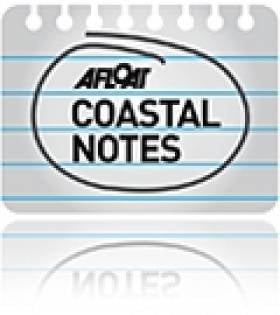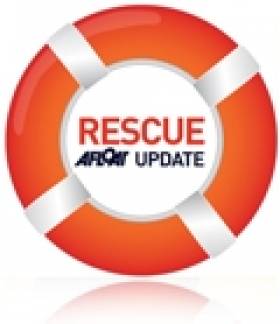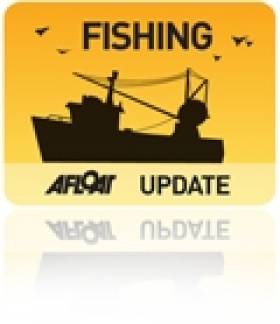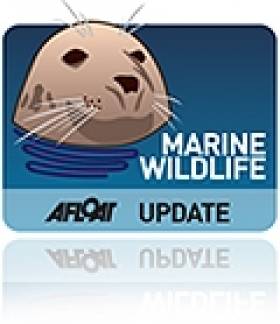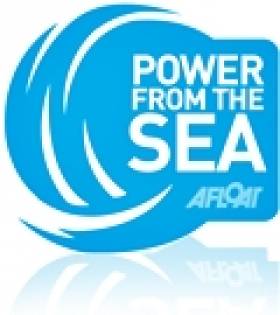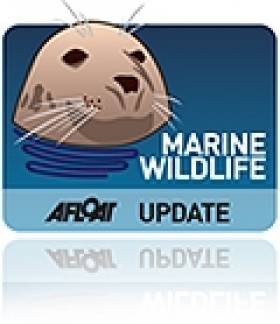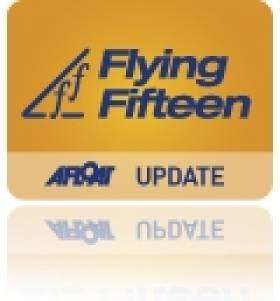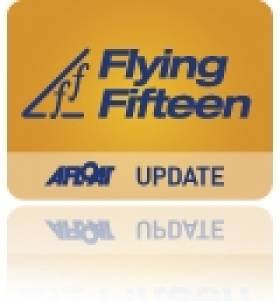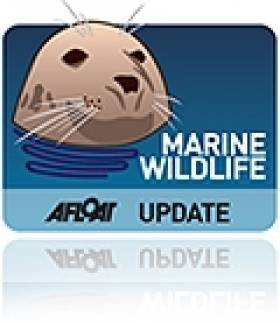Displaying items by tag: Strangford Lough
Oscar Winning Director of 'The Shore' Returns to NI
#COASTAL NOTES - Northern Irish director Terry George has returned to a hero's welcome in his native Co Down following his Oscar win for short film The Shore, the Irish Echo reports.
The film, which was set on Coney Island near Killough on the egde of Strangford Lough, tells the story of a man who returns to his coastal community after 25 years living in the USA.
“It’s great to come home and to visit everyone who made the film possible, the people who were in it, go back and see our neighbors,” said George on landing in Belfast. “You kind of hope that you’ll bring back the awards here to Ireland.”
The Shore is also a family effort, as it was produced by the director's daughter Oonagh George.
Search Scaled Down for Missing Crewman in Irish Sea
#RESCUE - BBC News reports that the search for a cargo ship crewman missing in the Irish Sea has been scaled down.
The 22-year-old from Slovakia was reported missing yesterday morning from the Fehn Sirius, which was en route from Belfast to Portugal, as it headed past Arklow, Co Wicklow.
According to The Irish Times, he was last seen on the cargo ship around 10pm on Monday night as it headed south of the entrance to Strangford Lough.
Lifeboats from Portaferry and Newcastle in Northern Ireland and Arklow joined the search and rescue operation, which was assisted by the RAF helicopter based at Prestwick in Scotland and an Irish Coast Guard helicopter.
However, most rescue services have now been stood down as the Fehn Sirius continues to backtrack in the Irish Sea, with assistance from the Naval Service vessel LE Ciara.
Only three days ago the body of another mariner was recovered from the Irish Sea off the north Dublin coast, more than a month after he went missing.
Strong Debate Over Proposals for Fishing-Free Zones in Strangford Lough
#FISHING - Proposals to close substantial areas of Strangford Lough to fishing vessels have been met with strong criticism by Northern Ireland's commercial fishermen.
In a recent letter to the News Letter, Paul Leenan writes asking Fisheries Minister Michelle O'Neill to clarify the government's position following a complaint to the European Commission by the Ulster Wildlife Trust regarding the protection of horse mussel reefs in the lough.
While recognising the importance of the lough's marine ecosystem, Leenan writes: "The notion that substantial areas of the lough could be closed to fishing vessels is of serious concern to fishermen, at a time of great economic difficulty.
"Any hasty action could put livelihoods at risk and threaten the viability of the whole fishing industry here."
In response, the Ulster Wildlife Trust claims that "the management of certain aspects of the fauna and flora within the lough has caused... much concern over the past two decades."
Joe Furphy of the trust writes: "If we are to secure a truly sustainable future for the lough, its environment and diverse wildlife, upon which sustainable fisheries rely, then we need to ensure that adequate ‘non-disturbance zones’ are put in place."
Protection Needed for Horse Mussels in Strangford Lough
A new study from Queen's University Belfast has revealed the extent of damage to horse mussel reefs in Strangford Lough, the Bray People reports.
The report highlighted a lack of action on the part of the NI government departments responsible for the lough, which is designated as a Special Conservation Area and a Marine Nature Reserve.
According to BBC News, previous studies in the late 1990s showed that many of the mussels were dead, and urged regulatory action to protect the remainer that did not come to pass until earlier this year, when two non-disturbance zones were declared to reduce pot fishing in the reef areas.
On top of the continued ban on mobile fishing gear, the new study recommends "total protection" in areas of the lough where fishing activity is affecting the recovery of horse mussel reefs, and notes that "signs of natural recovery might be expected within 20 years... provided there is no further disturbance".
New Mammal Detection Sonar System for Sea Turbines
The latest product from sonar technology company Tritech is a mammal detection system for use around underwater turbines.
According to the manufacturers, the Gemini SeaTec system uses a multi-beam sonar and image detection software to provide real-time monitoring and warning of sea mammals in the vicinity of subsea turbines, allowing operators to take corrective action.
The system also logs valuable data that may be used for environmental assessment in any sea turbine development project.
Tritech's system is already installed on the SeaGen tidal turbine in Strangford Lough in Northern Ireland. The system also has future possible applications in cable lay survey operations and general subsea monitoring.
For more details visit the Tritech website.
Strangford Lough Gears up for June Sailing Weekend
As local boats on the Lough launch their boats in preparation for the 2011 sailing season, entries continue to come in from all around the UK and Ireland, making the 2011 event the most exciting ever. From big names in big boats to the small two person Squib class, there will be fantastic racing for everyone on the championship courses around the stunning waters of Strangford Lough. Whether you wish to sail in IRC, One-design, PY or a more relaxed 2-Sail we have a class to suit.
Competitors can look forward to plenty of prizes and a lot of fun. Whilst Principal Race Officer, David Young, puts all his efforts into making sure the on the water activities run smoothly, a dedicated team will be making sure that off the water competitors, crews and visitors will not be short of entertainment. Based in Killyleagh Yacht Club, an extensive programme of bands and live acts will ensure everybody participating has a great weekend as well.
For more information on this event please visit www.slrw.org
Poots Appeals Over Latest NI Seal Deaths
NI environment minister Edwin Poots has appealed to the public for information on marine animals following the suspicious deaths of five seals in Strangford Lough last week.
The grim discovery comes only weeks after a wave of fatal corkscrew-like injuries to seals in the same region.
The UK Department of Environment confirmed to the BBC that one of the seals had similar corkscrew imjuries, while another had been shot.
Minister Poots told BBC News: "Despite warnings from the Northern Ireland Environment Agency in the media, there are still people who have no qualms about carrying out this inhumane practice."
He added: "Now, in the light of the latest deaths, it is even more important that we find out who is behind this and put a stop to it."
Martin and Murray Continue Flying Form
Strangford Lough sailors maintained their grip at the top of the Irish Flying Fifteen fleet in the last event of the season. National champions Darren Martin and Simon Murray were the winners of the five race light air series on Carlingford Lough at the weekend. Second overall in the 34-boat fleet was Gerry Reilly and P. Quail and third Roger Chamberian and J. Scammell. Full results attached for download.
Big FF Turnout in Carlingford
The fleet drawn from Strangford Lough, Carrickfergus, Dunmore East, Dun Laoghaire as well as the host port almost was double the size of July's National championship fleet at Carrickfergus.
But for all the new faces there were familiar names at the top. National Champions Darren Martin and Simon Murray have built a commanding lead after scoring 2,1,1 in northetly winds shifting up to 30 degrees. There is a fight for second overall but Dun Laoghaire's John Lavery and David O'Brien are detainly in with a chance counting 1,10 and 2. Brian McKee and Steven Martin are also in the frame.
Protected Seals in Northern Ireland Were Decapitated
A total of 16 were found, mainly grey pups and juveniles - which are both protected under European legislation - were recovered from Strangford Lough and Dundrum Bay.
The Environment Agency said circumstantial evidence indicated interaction with some form of net in at least two cases, but there was no proof the seal deaths resulted from legitimate, licensed fishing activity.
"Neither is there evidence linking these deaths to the marine current turbine being trialled in the Strangford Narrows, as this would not inflict the sharp cuts seen," the agency said.
Declan Looney, senior wildlife inspector from the Northern Ireland Environment Agency, said: "Members of the public can assist by reporting all dead seal strandings to NIEA on 028 4461 5520." More from the Belfast Telegraph HERE.


























